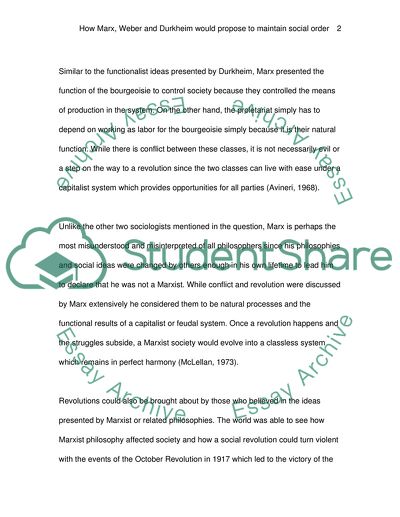Cite this document
(“How Marx, Weber, and Durkheim would Propose to Maintain Social Order Essay”, n.d.)
Retrieved from https://studentshare.org/sociology/1537576-how-marx-weber-and-durkheim-would-propose-to-maintain-social-order
Retrieved from https://studentshare.org/sociology/1537576-how-marx-weber-and-durkheim-would-propose-to-maintain-social-order
(How Marx, Weber, and Durkheim Would Propose to Maintain Social Order Essay)
https://studentshare.org/sociology/1537576-how-marx-weber-and-durkheim-would-propose-to-maintain-social-order.
https://studentshare.org/sociology/1537576-how-marx-weber-and-durkheim-would-propose-to-maintain-social-order.
“How Marx, Weber, and Durkheim Would Propose to Maintain Social Order Essay”, n.d. https://studentshare.org/sociology/1537576-how-marx-weber-and-durkheim-would-propose-to-maintain-social-order.


